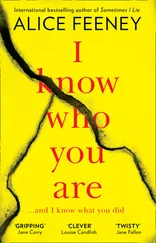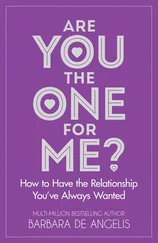“Why are you telling me this now?” I remember asking.
And her response was cryptic and profound: “Govorish po sekretu, poidyot po vsemu svetu.” When you tell a secret, it travels the world.
She didn’t learn the full story, she said, until she and her parents had been living in Russia for a year. She knew they had defected, but she didn’t know why. She didn’t know that her father was a spy. “Sveta helped me track you down. I wanted to contact you long ago,” she said. “But I waited until my dad died.”
“When did he die?”
“Last year. Heart attack.”
“I’m sorry.”
“Yeah, well. Living here depressed him. He basically drank himself to death. He sat in that leather chair and guzzled vodka and felt sorry for himself.”
“And your mom?”
“The funny thing is that my mom really took to Moscow. She could always adapt to any situation. She started socializing with all these KGB wives, inviting them for dinner and teaching them how to bake apple pie. Her grandmother was Russian, so she embraced her heritage. She started a singing group and made the other women teach her Russian folk songs. She had a traditional folk costume and everything. She made the best of it. Until she got cancer.”
“Is she ... ?”
“Yeah. She died the year before my dad.”
I wondered where Mr. and Mrs. Jones were buried. Had they been cremated? Were their ashes in an urn somewhere in the dacha? I shuddered.
“How’s your mom?” she said.
“She’s still around, still working for disarmament.”
“I know. I’ve read about the foundation,” she said with a short, sharp laugh. “Sveta says I should get a cut.”
“A cut?”
“It’s the Jennifer Jones Foundation, isn’t it?” Zoya/Jenny said. “Without me it wouldn’t exist.”
“It’s a nonprofit,” I said. “There is no cut.”
“It was a joke,” she said.
“How come no one recognized you when you first moved here?”
“We didn’t leave the house much the first year. We were out here in the country. A tutor came to give us Russian lessons every day, but otherwise we didn’t have much company. By the time we were allowed to live in an apartment in the city, we’d learned to blend in. And besides, our deaths were reported here, too. It’s not like anyone expected to see us.”
“Why Zoya?” I said. “Did you choose your Russian name?”
She shrugged. “My dad always liked the name Zoe,” she said.
“And the plane?” I said. “The plane that crashed? The one you were supposed to be on ...”
“We weren’t on it. The plane went down empty. The pilot bailed out.” She smiled as if she had just remembered something. “It feels good to speak English.” Her voice was so much deeper. Even deeper than her mother’s had been. I kept waiting for that moment when we would click. “When I do simple math in my head,” she said, “I do it in English because I lived in the States when I learned arithmetic and pre-algebra. But geometry and calculus and statistics? I learned them here, so in my head the numbers and equations are all in Russian.”
“Do you do a lot of math?” Jenny had been terrible at math; had she really made it all the way through calculus and statistics?
“Lately I must make many calculations.”
Ten years in another country, speaking another language, eating different foods. Would she have grown taller if she had stayed in the States with access to more vegetables and less exposure to pollution? She went to Russian schools, was forbidden to travel abroad. It would change anyone.
“So you knew you were leaving,” I said. “Long before you left.”
“I knew a few days before we left,” she said. “I couldn’t bring anything with me. Not even my cat.”
She was sculpted and cold, with none of Jenny’s spontaneity and warmth. Doubt reasserted itself.
“What was your cat’s name?” I said.
“Hexa,” she said.
“What was your house number in Washington?”
“Three five zero three.”
“When is your birthday?” I said.
“June eighteenth, 1972,” Zoya said. “At least that was my old birthday. All my Russian documents say I was born in May. I don’t have an American passport anymore. Everything from our old life was destroyed. We had to start over.”
“So you have no proof of who you were.”
“I have you,” she said. “You’re my proof.”
There are insects that have been suspended—lifelike—in amber for 60 million years. Amber begins as resin, sticky and sweet, trickling down the trunks of ancient trees. Mosquitoes, scorpions, and ants are seduced by the smell, then trapped in the resin and held, immobile, unchanging, as the liquid hardens and the trees die and layers of sediment compress the resin into fossils. Even after millions of years of pressure, the insects are preserved—their legs and wings perfectly articulated—as if no time has passed.
“What was my sister’s name?” I said.
“Izzy,” she said. “Short for Isabel.”
“What about Kim?” I said.
“Who?” Her face drew an absolute blank.
“Kimberly Coughlin,” I said. How could she forget Kim? For a year they were inseparable.
It was possible, I suppose, that Kim had slid through one of memory’s cracks. There were certainly gaps in my memory. If Kim didn’t matter to Jenny as much as I thought, perhaps she had been left behind. Jenny had more valuable memories to hold on to. I’d like to think that I was one of the most valuable ones. Or perhaps she didn’t remember Kim because she wasn’t really Jenny. After all, Kim had never had a place on the official record of Jennifer Jones’s life. Even Hexa was mentioned in some of the interviews. Kim’s name had never made it into any of the papers.
“You were my best friend,” she said. The phrase had the hollow snap of a slogan.
“And now?” I said.
“Now I need help,” she said. “I’m broke.”
“I told you. The foundation is a nonprofit,” I said.
“But your father gives you money.”
“Svetlana told you that?”
“Last April,” she began. “I had an investment opportunity. An oil concern. A chance to protect my savings from inflation. The money my father left—the pension from the KGB—I found a way to make it last.” She drew nervously on her cigarette. “Oil. One thing this country has is oil. And the investment company’s board of directors ... There were names I knew on the list. Names I recognized. Former government officials. I told Svetlana we would not have to worry about money anymore. The state is bankrupt, but the market, the free market, it will provide for us.” She took another drag. “The minimum investment was one million rubles.”
“You gave them one million rubles?”
She nodded, sadly.
“In April of this year?” She nodded again. I did the math based on the exchange rate in the spring of 1995. A million rubles was about two hundred thousand dollars. “And it’s gone?”
“You think I’m very stupid, don’t you? You think how very naïve I am, to trust these people. Their board of directors? All those official names? The fancy stationery with the letterhead? I know now it was false. These were common criminals. But you don’t know what it’s like to be here, with the ground shifting all the time under your feet, with the rules changing, with the food disappearing and the opportunities—so many opportunities! I thought I would be an actress!—slipping through your fingers. You see this house? This is all I have. I was going to be a movie star. I thought I was going to live in Hollywood. Now I barely have enough to eat. It’s not fair. Do you know what it’s like to lose everything?”
“You want money?” I said. I thought of the money from my father. Ten thousand dollars was nothing to him. He and Phillipa wrote checks of that size all the time.
Читать дальше












